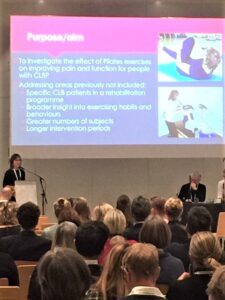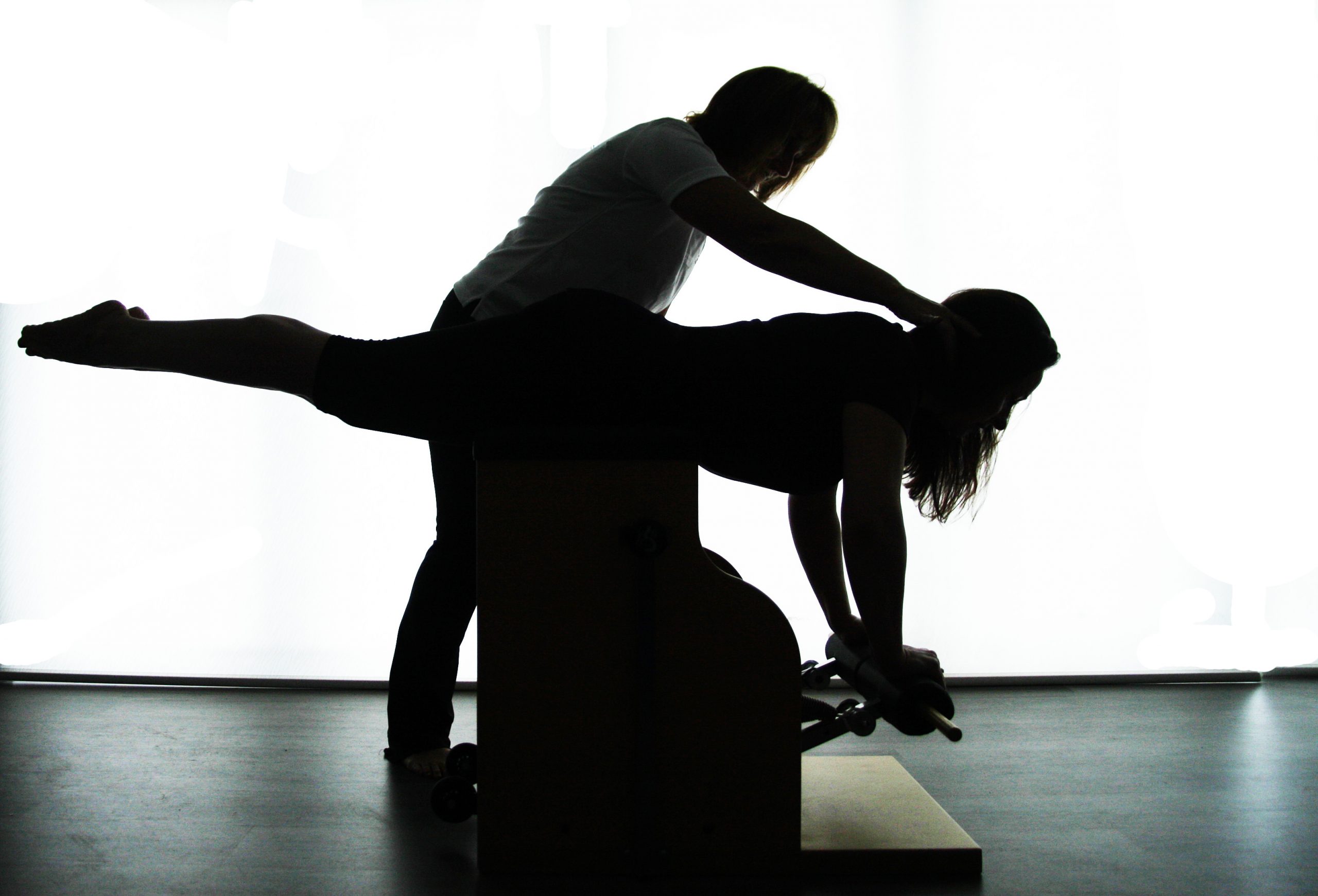Share it with your friends, family, your doctor and anyone who has low back pain.
When will everyone avoid inappropriate treatment for low back pain?
Here’s my feedback from the Global Congress on Low Back Pain at which I presented my research on Pilates, which took place in Antwerp in October 2019.

In my practice I encounter many people who do not understand their condition and have been misadvised. They have accepted inadequate solutions, often in the form of steroid injections (which may mask the pain but do nothing to address the underlying condition), needless surgical procedures, excessive painkiller drugs or inappropriate exercise programmes.
As many of you know I recently spoke at the 10th Interdisciplinary Global Congress on Low back Pain, a major international medical congress held this year in Antwerp. This not only enabled me to present my research on the benefits of Pilates exercises to combat low back pain, but also gave me the opportunity to listen to other specialists from around the world on the latest views on treating these debilitating conditions.
Several speakers supported my view about inappropriate treatment and spoke about the over-use by GPs and consultants of opioid medication (that is strong painkillers) and ineffective treatments like cortisone injections, that they claimed are in fact potentially unsafe.
Professor Maurits van Tulder, on behalf of the Lancet Low Back Pain Series Working Group, introduced studies* showing that exposure to such treatments has wasted limited health-care resources and harmed patients. He described an epidemic of addiction and rising mortality resulting from increased opioid prescribing as a dramatic example of the disastrous effects of damaging medical intervention. The viewpoint also included awareness of the biopsychosocial model of low back pain which has greatly advanced the understanding of the prognostic significance of psychosocial factors in individual patients.
My own study was carried out on 137 patients with low back pain recruited from the UK, USA, Canada and Australia. Results showed that 96% of the subjects recorded pain reduction following a programme of clinical Pilates. In fact, I found that with those with the greatest reduction in pain were those suffering from the most serious conditions, emphasising Pilates in its clinical application as a conservative approach that does deliver benefit.
Other world specialists also concluded that the focus should be on such conservative treatments for low back pain. They also recommended psychological and exercise therapies as preferable to the use of opiates, injections and surgical procedures and I was delighted that my own study conformed well with this modern line of thinking.
I see many patients who present with depression following periods – often years – of inappropriate treatment driven by outdated protocols or even financial inducements which are preventing the shift from what has become the accepted medical framework.
These patients feel they are hopeless cases and often catastrophise their predicament with their back pain and the mistreatment they have been through ruling their lives. It then falls to me to establish a rapport in which I can better manage their expectations of a successful outcome.
I direct them away from the wasted time and resource they have been through and their fear of movement and introduce positive thinking and acceptance that they will be able to manage the bespoke exercise programmes I compile for them and so elicit commitment.
*The Lancet, Vol. 391, No. 10137

